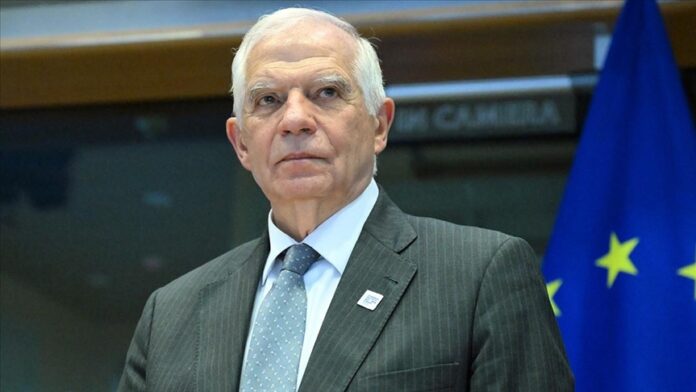Ahead of this year’s World Humanitarian Day (WHD), the European Union (EU) Commissioner for Equality, Preparedness and Crisis Management, Hadja Lahbib, has sounded the alarm over growing threats to humanitarian workers worldwide, describing 2024 as the deadliest year ever recorded for aid staff.
It was reported that WHD is celebrated on August 19 of every year.
In a statement released Monday ahead of World Humanitarian Day, she said attacks on civilians, hospitals, schools, and aid workers have surged, eroding respect for International Humanitarian Law (IHL) despite the protections enshrined in the Geneva Conventions.
“Violating IHL is a crime,” Lahbib stressed, warning that widespread impunity for perpetrators has emboldened further abuses.
According to EU figures, 383 aid workers were killed, 308 wounded, and 125 kidnapped in 2024. Already this year, 265 humanitarian staff have lost their lives, raising fears that 2025 could surpass the previous record.
The commissioner underscored that local humanitarians bear the brunt of these attacks, making up 90 per cent of victims. She highlighted the EU’s Protect Aid Workers rapid-response programme, which is currently supporting 376 local staff in 211 critical incidents.
“Without accountability for the killing of aid workers, more will die,” she warned.
Lahbib also noted that while high-profile crises in Sudan, Gaza, and Ukraine draw global attention, many other humanitarian emergencies continue largely unnoticed, like the frequent communal clashes and terrorist attacks in the northeastern and Middle Belt areas of Nigeria.
The country has had its own fair share of attacks on humanitarian aid workers.
According to government and humanitarian reports, at least 49 separate incidents between 2020 and 2024 affected 79 aid workers across the country. These included kidnappings, ambushes, and direct assaults. In 2024 alone, 26 humanitarian workers were kidnapped, ambushed, or assaulted while on duty.
During the recent June 13th brutal attacks in Benue, a young doctor was killed prompting outcry by the Nigerian Association of Resident Doctors which followed with an indefinite strike in the state. Also targeted by attackers was a church housing internally displaced persons and aid workers.
These ongoing attacks in the northeastern and Middle Belt regions have left aspiring community healthcare workers like Uchechi Vincent, a final year student, in apprehension of her future.
“When I hear about aid workers being killed in other countries, I honestly feel scared. Yes, it is true that every job has its challenges but healthcare work carries its own risk. I would like to volunteer at a local community for my internship, but the thought of violence scares me,” she said.
Although the federal government has made visible efforts to reposition its humanitarian structures this year, much remains to be done to care for those who care for humanity. Local communities, particularly in the Middle Belt and northeastern part of Nigeria, and by extension humanitarian aid workers and volunteers are still very vulnerable to violence with little to no protection and an almost ineffective security response.
In light of that, the EU Commissioner has stressed that although humanitarian aid remains a “beacon of hope,” political action is essential to resolve conflicts and address the root causes of suffering.
“Ending the suffering caused by conflicts and man-made crises requires courageous political leadership and action to forge lasting peace and protect the most vulnerable,” she said.
The EU remains one of the world’s largest humanitarian donors, providing food, water, and medical care in emergencies across the globe.
Also speaking on Monday, the International Organisation for Migration (IOM) paid tribute to “those working in the front lines of crisis,” calling on for adequate safeguards for those who serve humanity.
“IOM calls on all states and parties to armed conflict to fulfil their legal obligations to protect humanitarian workers and ensure that assistance reaches civilians swiftly, safely, and without obstruction.” The organization asserted.

